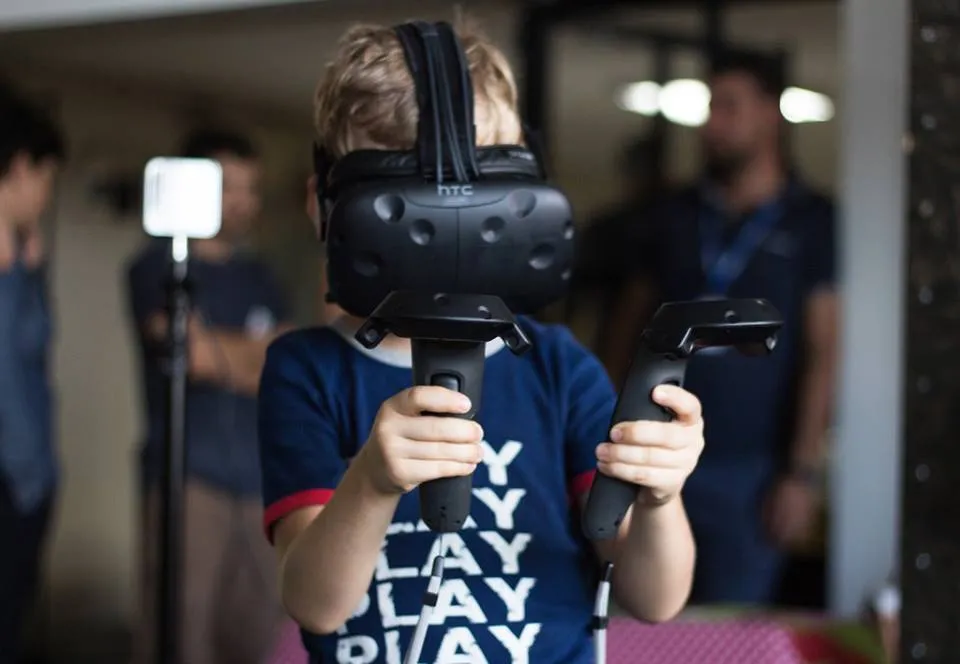You might not have heard of Quark VR (formerly known as Intugame) before, but HTC Vive fans might want to get to know them.
The Bulgaria-based company is primarily working on its own software development kit (SDK) that allows developers to stream VR games developed on PC with engines like Unreal and Unity into any kind of headset. That’s not a completely new concept, but it appears the company might be working on a pretty enticing idea nonetheless; a wireless version of the HTC Vive.
Quark VR founder and CEO, Krasi Nikolov, confirmed to Upload that it’s developing a project designed specifically to show off the company’s streaming software, meaning this will very likely be a one-off device only used by the company. Think of it as a modded Vive, though Quark is planning to open source the hardware design too.
When asked if this was an official new iteration of the Vive, Nikolov said the company wasn’t talking about a future version of the device. That’s a shame, though we do know that HTC is still only in the early discussion phase of its successor.
The prototype is said to have a Vive connected to a single-board computer and a battery, with rendering of the VR scene likely done on a wireless PC nearby. This would mean the system would put far less weight on the person in VR compared with a backpack PC. Quark said Valve Software (which is behind the Vive’s technology) and other companies are providing the company support. When I asked Nikolov exactly how Valve was involved, he said advising it on OpenVR integration and support with hardware.
This sounds pretty early, but the cord keeping you tethered to a PC in a room-scale experience is the single biggest thing holding the technology back. A number of companies are trying to solve that problem with different approaches, and Quark VR is just the latest example.
The company also wants to use the Valve’s Steam VR Tracking technology to enable positional tracking on mobile VR headsets like Gear. It has already done some tests on the Gear VR, described as “very promising”.
A working prototype of the wireless Vive should be ready for demoing later this fall, hopefully at the upcoming VRDC event in November. The company plans for this demo to feature low latency streaming running at 90fps, offering full room scale tracking with the kit’s position-tracked controllers. If they pull it off, then this could be a pretty effective workaround for the tethered nature of PC-based VR headsets until computing power advances far enough to make everything standalone.
Images of the prototype will be coming soon.





























